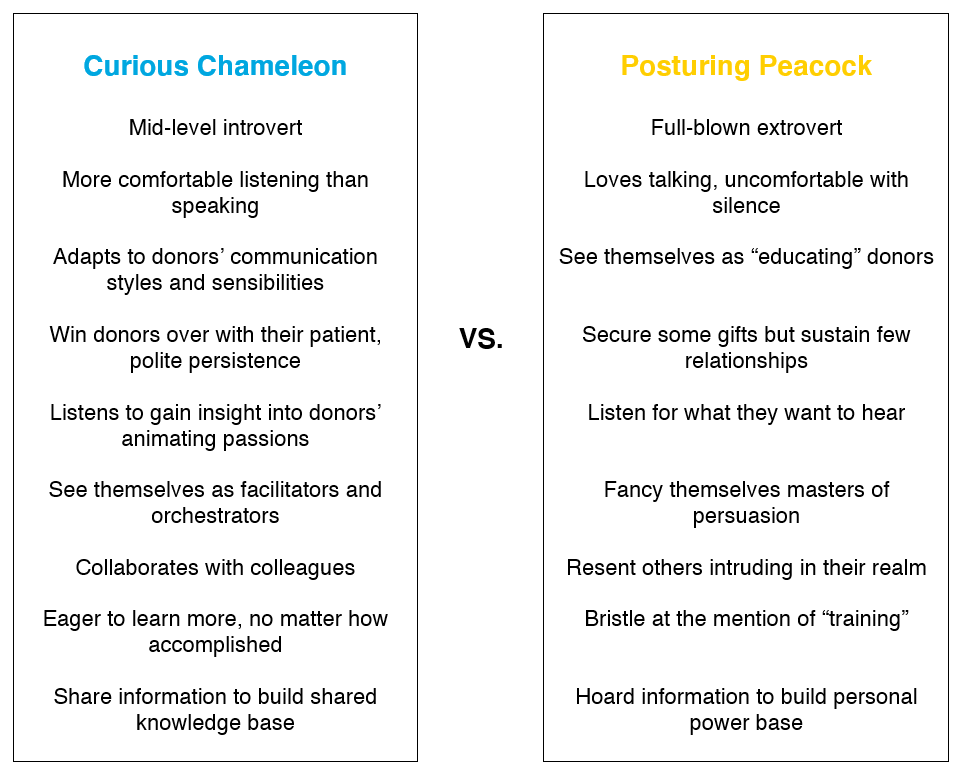We use cookies to ensure that we give you the best experience on our website. By continuing to use this site, you agree to our use of cookies in accordance with our Privacy Policy.
 Login
Login
Your Role
Challenges You Face
results
Learn
Resources
Company
The Zoology of Fundraising: More Chameleons, Fewer Peacocks


The Education Advisory Board, after analyzing donations to 1,217 major-gift officers at 89 colleges and universities in the United States and Britain, concluded the most effective fundraisers were “Curious Chameleons” – those possessed of a unique blend of optimal traits including behavioral and linguistic flexibility, intellectual curiosity, and assertiveness in soliciting prospects. Yet only 3.8 percent of the major-gift officers surveyed had that ideal combination.
Far too many hiring authorities, having fallen prey to persistent, pernicious myths about fundraising, bypass or fail to nurture the chameleons in their midst, opting instead for peacocks.
To assist them in identifying chameleons and their best and peacocks at their worst, I offer this taxonomy.
By the way, this study was done in 2014. Why does fundraising practice so often lag fact and reality and by such a wide margin? Reality eventually catches up, but the longer the lag, the nastier the collision.

Jim Langley is the president of Langley Innovations. Langley Innovations provides a range of services to its clients to help them understand the cultural underpinnings of philanthropy and the psychology of donors and, with that knowledge, to develop the most effective strategies and tactics to build broader and more lasting communities of support. Jim has authored numerous books including his most recent book, The Future of Fundraising: Adapting to New Philanthropic Realities, published by Academic Impressions in 2020.
Related Resources:
- Webinar: 4-Step Process for “Reimagining Fundraising Operations”
- The Seven Principles of Advancement Leadership
- 7 ‘Hire Me Now’ Traits of Highly Effective Major Gifts Officers
- This is the #1 driver of fundraiser turnover
Get smarter with the SmartIdeas blog
Subscribe to our blog today and get actionable fundraising ideas delivered straight to your inbox!
